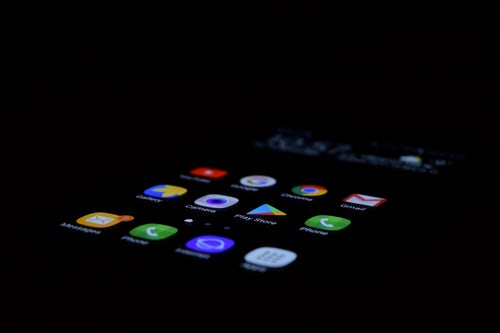In less than a year, Epic Games’ battle royale sensation Fortnite has an estimated revenue of over $1 Billion across all the platforms. Very recently Epic Games made an announcement declaring it will not be distributing its most popular game Fortnite on Google Play Store. Though the game is available for download over the iOS App Store.
Available over the website for Android users
Instead of releasing it over the Google Play Store, the company is planning to distribute the software of the game over the official website of Fortnite. On the website, Android users can easily download the installer program of Fortnite which will allow them to install the game on all the devices that are already compatible. Epic Games would be bypassing Google for the game launch of the Android version.
There have been no official statements regarding the release date of Fortnite for the Android version. But if rumors are to be believed, the game release is supposedly tied up with the release of the upcoming Samsung Galaxy Note 9. Even after the rumors were circulated, Epic Games has denied giving any comments on the release date or a rumored partnership with Samsung.
Departing from the industry practice
The announcement has shown the bold departure from the usual practice of launching an app on the app store by Apple and Google. For iOS, Epic Games will be distributing the game on the app store itself. This is mostly because there is no other way they can get iPhone users to download the game. The reason for this is iOS, unlike Google, doesn’t allow its users to download apps that the internal review process has not approved. The app is also required to be distributed by the proprietary marketplace. Because Google has a more open platform, Epic Games can offer the users to download the game’s software.
A two-fold step
Epic Games is currently distributing Fortnite for PC using the Epic Game Launcher. According to CEO Tim Sweeney, the major reason for doing this goes two ways. By doing this, Epic Games intends to maintain the already present direct relationship with its users. At least, they can do this on the platforms where it is possible for them to do. Physical fronts or middlemen are no longer required in the digital age. So this is one of the best ways to be in touch with the audience.
The second reason for doing this is completely financial. Google charges a 30% cut for the apps on the app store. Epic Games is not willing to pay the 30% cut to Google for Fortnite, considering the funding of the entire game is managed through in-app purchases. They believe 30% cut is too high because managing the rest of the development, operations, and support of the game is not possible for game developers to make do with the remaining 70%.
The cut not justifiable through the services offered
It’s a different thing when the game is sold on a console. There is a large investment when it comes to hardware. It is sold below cost. Also, the marketing campaigns are done with publishers. Also, Google’s 30% cut is superfluous when it comes to the services offered by the platform like downloads frequency, customer support, payment procedures etc. Because Epic Games is already familiar with the costs of app stores because of their dealing with iOS, they know that Google’s 30% cut is not justified.
What about the launch of future games?
But the question here is whether Epic Games is doing this only for Fortnite? Or will it be following the same rule for other mobile games as well? Epic Games might be thinking of cutting costs by not having to pay for the 30% cut to Google. But won’t that affect the company’s relationship with Google’s app store? And won’t this matter in the future where it Epic Game might have to launch another game?
Riding high on the success
A positive and understanding relationship with these platforms is important for companies for several reasons. The reason why Epic Games is able to do this is that of the popularity of the game. Epic is in a position to take advantage of their game’s popularity. But this can be disastrous for other app development companies or app developers in general.
